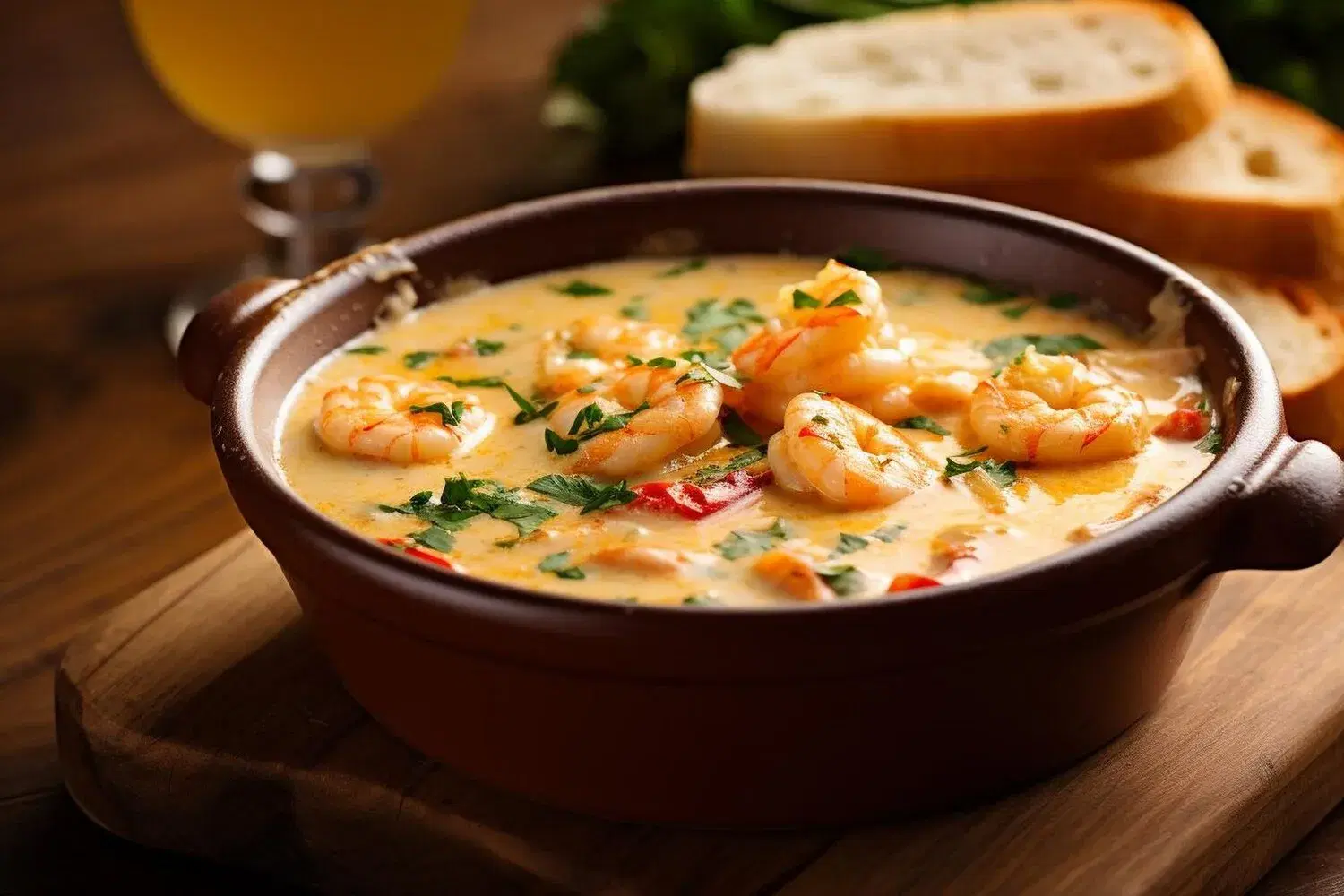
Bobó de Camarão
A creamy shrimp dish made with cassava purée, coconut milk, and dendê oil (palm oil).
Nutrition Facts
* The % Daily Value (DV) tells you how much a nutrient in a serving of food contributes to a daily diet. 2,000 calories a day is used for general nutrition advice.
Premium Feature
Encontro do Sabor
Premium Feature
Bobó de Camarão is a dish deeply rooted in Afro-Brazilian cuisine, reflecting the fusion of African ingredients and cooking techniques with native Brazilian ingredients. It evolved from similar African stews, adapted with locally available ingredients after the arrival of enslaved Africans in Brazil. The use of dendê oil, cassava, and coconut milk showcases this blend.
Premium Feature
Bobó de Camarão is more than just a dish; it's a symbol of Afro-Brazilian heritage and culinary identity. It is often served during special occasions, celebrations, and religious ceremonies, representing a connection to ancestors and a celebration of Brazilian culture.
Candomblé Rituals
Bobó de Camarão holds significance in Candomblé, an Afro-Brazilian religion. Certain variations are prepared as offerings to deities, emphasizing the dish's spiritual and cultural importance beyond mere sustenance.
Bahian Cuisine Icon
It's a quintessential dish of Bahia, a state known for its vibrant Afro-Brazilian culture and cuisine. In Bahia, Bobó is considered a cultural emblem and a source of regional pride.
Family Gatherings
Often prepared and enjoyed during family gatherings, Bobó de Camarão represents a shared heritage and a connection to traditions passed down through generations. Recipes are closely guarded family secrets.
Premium Feature
Bobó de Camarão offers a rich and complex flavor profile, characterized by creamy, savory, and slightly sweet notes. The shrimp provides a briny seafood base, while the cassava and coconut milk contribute to the creamy texture and subtle sweetness. The dendê oil imparts a distinctive reddish hue and an earthy, slightly smoky flavor that is central to the dish.
The dominant flavors in Bobó de Camarão come from the combination of fresh shrimp, creamy cassava (manioc) puree, and the distinctive taste of dendê oil (palm oil). Coconut milk adds sweetness and richness, while ingredients like tomatoes, onions, garlic, bell peppers, and cilantro contribute layers of savory depth. Lime juice or malagueta peppers can be added for acidity and heat, balancing the richness of the dish.
Premium Feature
Dendê Oil Caution
Dendê oil has a strong and distinctive flavor. Use it sparingly at first, tasting as you go, to avoid overpowering the other ingredients. It can also stain easily, so be careful when handling it.
Cassava Preparation
Proper cassava preparation is crucial. Ensure the cassava is thoroughly cooked until soft and easily pureed. Any lumps will affect the final texture of the dish. Using pre-made cassava puree can save time but fresh cassava provides a better flavor.
Shrimp Quality
Fresh, high-quality shrimp are essential for the best flavor. Devein the shrimp carefully to remove any bitterness. Consider using a combination of small and large shrimp for textural variety.
Coconut Milk Consistency
Use full-fat coconut milk for a richer and creamier texture. If using reduced-fat coconut milk, you may need to add a thickening agent like a cornstarch slurry.
Premium Feature
Explore additional Seafood dishes and restaurants
Explore SeafoodDiscover top dining spots and culinary experiences in Vitória.
Explore VitóriaLearn more about the food culture, restaurant scene, and culinary heritage of Brazil.
Explore Brazil